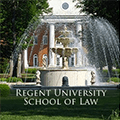Free Consultation: (970) 893-8857Tap to Call This Lawyer

Kevin Michael Strait
Attorney in Fort Collins, Colorado
Badges
Claimed Lawyer ProfileQ&A
Education
- Regent University School of Law
- J.D.
-

- Virginia Commonwealth University
- B.S. | Physics
-

Professional Experience
- R&D Engineer
- Afton Chemical Corp.
- -
Publications
Certifications
- Advanced Ground Instructor
- Federal Aviation Administration
- Private Pilot License
- Federal Aviation Administation
- Locksmith & Electronic Security Consultant
- Department of Criminal Justice Services (Virginia)
Professional Associations
- State Bar of Colorado
- Member
- Current
-

- Lawyer-Pilot Bar Association
- member
- Current
-

- International Air & Transportation Safety Bar Association
- member
- Current
-

- Fort Collins Chamber of Commerce
- Member
- Current
-

- Denver Bar Association
- member
- Current
-

Jurisdictions Admitted to Practice
- Colorado
- Colorado Supreme Court
- ID Number: #56689
-

- Wyoming
- Wyoming State Bar
- ID Number: 8-6863
-

Fees
- Free Consultation
- Credit Cards Accepted
- Contingent Fees
Practice Areas
- Arbitration & Mediation
- Business - Arbitration/Mediation, Consumer - Arbitration/Mediation
- Business Law
- Business Contracts, Business Dissolution, Business Finance, Business Formation, Business Litigation, Franchising, Mergers & Acquisitions, Partnership & Shareholder Disputes
- Estate Planning
- Guardianship & Conservatorship Estate Administration, Health Care Directives, Trusts, Wills
- Intellectual Property
- Probate
- Probate Administration, Probate Litigation, Will Contests
- Trademarks
- Trademark Registration
Additional Practice Area
- Aviation Law
Languages
- English: Spoken, Written
Legal Answers
- Q. My gym made a t shirt that hints at another gyms logo. The t shirt is satire. I’m looking for a lawyer to take a look
- A: Though I can't comment on your specific legal situation in this forum, I can offer some guidance on the fair use doctrines in US trademark law. In a combination of codified federal law and certain supreme court rulings, the development of a phrase or logo that parodies an existing, registered trademark is generally allowed (and it not infringement) if the parody is not used as a trademark itself, and it not submitted for trademark protection. Trademarks serve the board purpose of identifying the source of goods and services in a marketplace. The trademark might be a business name, a product name, a slogan, or graphic artwork like a logo. To act as a trademark, the phrase or artwork must ... Read More
- Q. For the state of colorado - I am going to need to open an S Corp. Is it better to start it as LLC or C Corp for few day?
- A: Many people form an S-Corp to take advantage of the personal income tax breaks when paying yourself as both an owner and an employee of the business. The S-Corp election is more accurately called the "subchapter S tax election" and, as you point out, can be used in combination with an LLC or a traditional C-corp.
I'm not familiar with your situation and this answer is not legal advice specific to your goals, but generally the subchapter S election is used with LLCs where a small number of owners of the business wish to draw regular wages and make partners' draws.
If you make the subchapter S election, the underlying business will still be an LLC or a corporation (whichever ... Read More
- Q. Deceased Devisee
- A: This response is generalized information related to Colorado inheritance, and is not legal advice specific to your situation.
Gifts made in a Will are sometimes given special attributes, conditions, or rules. A gift that fails to meet the conditions required in the Will can "lapse." A lapsed gift cannot be collected by an heir.
One common condition placed on gifts in a Will is the attribute of the recipient surviving the deceased person.
Certain language in the Will can make the gift valid even if the recipient dies first. That recipient's estate, or more likely that persons heirs, can still collect the gift. But another common condition in a Will is that a gift will ... Read More
Social Media
Websites & Blogs
- Website
- Anzen Legal Group
Contact & Map

